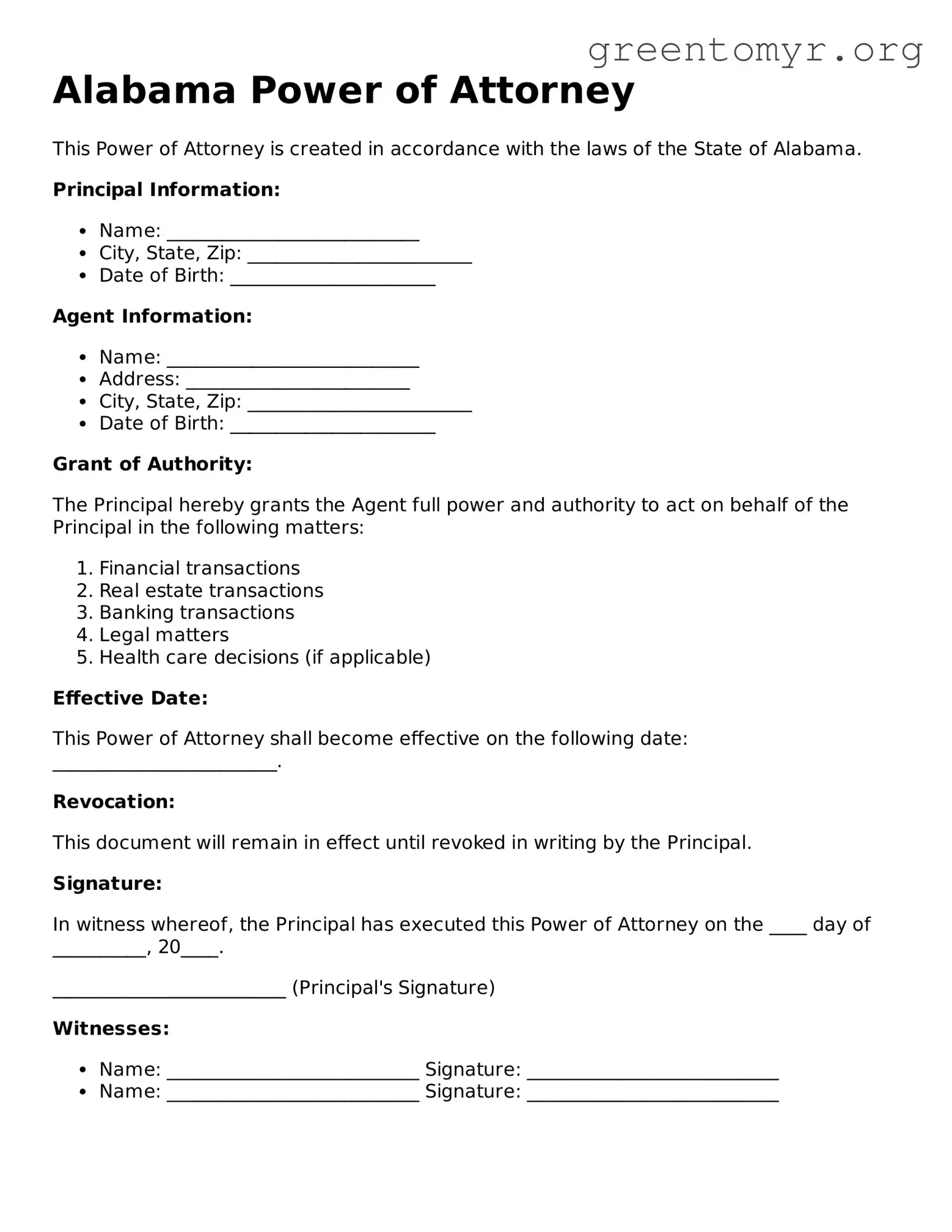What is a Power of Attorney in Alabama?
A Power of Attorney (POA) is a legal document that allows one person (the principal) to authorize another person (the agent) to act on their behalf. This can include decisions related to finances, healthcare, or property management. In Alabama, a POA can be general or limited, depending on the authority granted to the agent.
Why might I need a Power of Attorney?
A Power of Attorney can be useful in various situations, including:
-
If you become unable to make decisions due to illness or injury.
-
If you are traveling or residing in another location and need someone to manage your affairs.
-
For estate planning purposes, to ensure your wishes are followed when you are no longer able to communicate them.
Who can be an agent in a Power of Attorney?
In Alabama, an agent can be a trusted friend, family member, or a professional fiduciary. It is important to choose someone who is responsible and trustworthy, as they will have the authority to make significant decisions on your behalf.
What types of Power of Attorney are available in Alabama?
Alabama recognizes several types of Power of Attorney, including:
-
General Power of Attorney:
Grants the agent broad authority to act on behalf of the principal.
-
Limited Power of Attorney:
Restricts the agent’s authority to specific tasks or areas.
-
Durable Power of Attorney:
Remains in effect even if the principal becomes incapacitated.
-
Healthcare Power of Attorney:
Specifically authorizes the agent to make medical decisions for the principal.
How do I create a Power of Attorney in Alabama?
To create a Power of Attorney, follow these steps:
-
Select a trusted agent.
-
Decide whether you want a general or limited Power of Attorney.
-
Complete the required form, which can be obtained from legal websites or an attorney.
-
Sign the document in the presence of a notary public.
Do I need to notarize the Power of Attorney?
Yes, in Alabama, the Power of Attorney must be signed in the presence of a notary public. This ensures the authenticity of the document and helps prevent potential disputes regarding its validity.
Can I revoke a Power of Attorney?
Yes, a Power of Attorney can be revoked at any time, as long as the principal is competent. To revoke, a new document can be created stating the revocation, or a written notice can be provided to the agent and any relevant third parties.
What happens if my agent misuses their authority?
If an agent misuses their authority, they may be held legally accountable. The principal or their family can pursue legal action to recover losses or remove the agent. It is crucial to choose an agent wisely and maintain communication regarding their actions.
Is a Power of Attorney valid in other states?
A Power of Attorney created in Alabama is generally valid in other states, but it is advisable to verify the rules and requirements of the other state. Some states may have specific forms or additional requirements, especially regarding healthcare decisions.
Can I have multiple agents in my Power of Attorney?
Yes, you can appoint multiple agents in your Power of Attorney. You may choose to have them act jointly, requiring both to agree on decisions, or severally, allowing each to act independently. Clearly state this in the document to avoid confusion.
